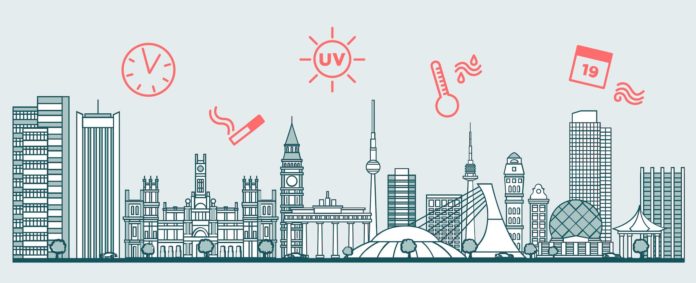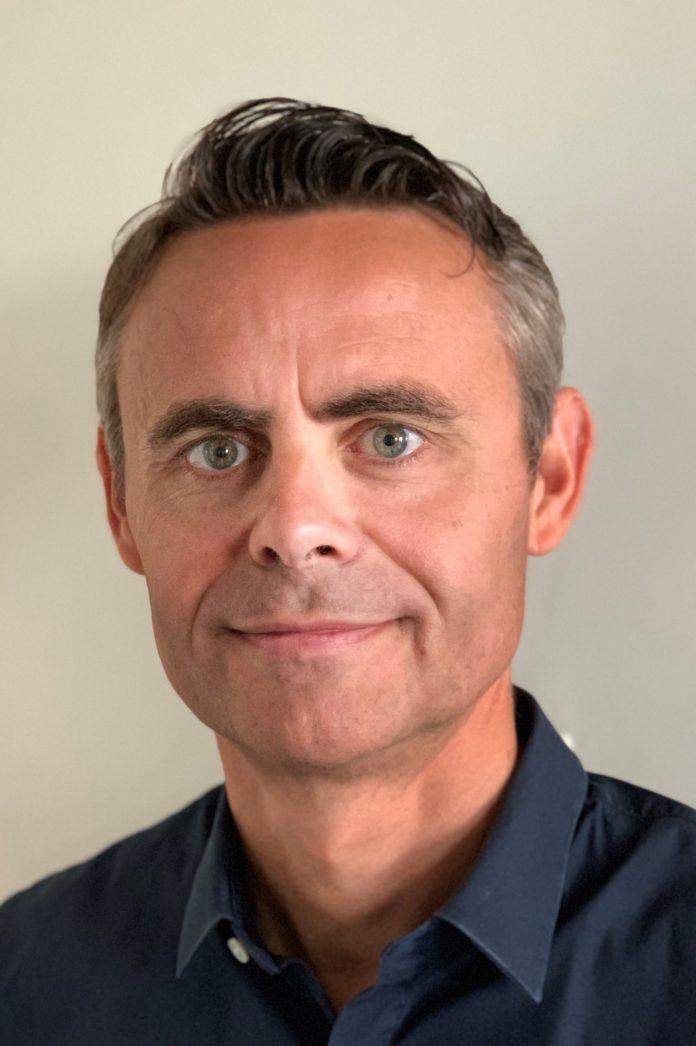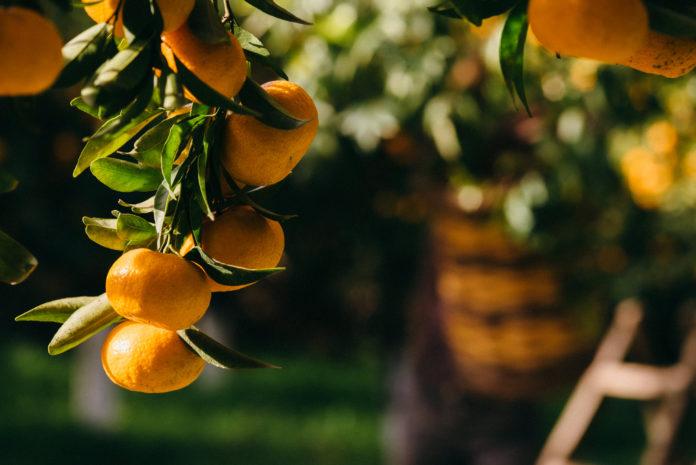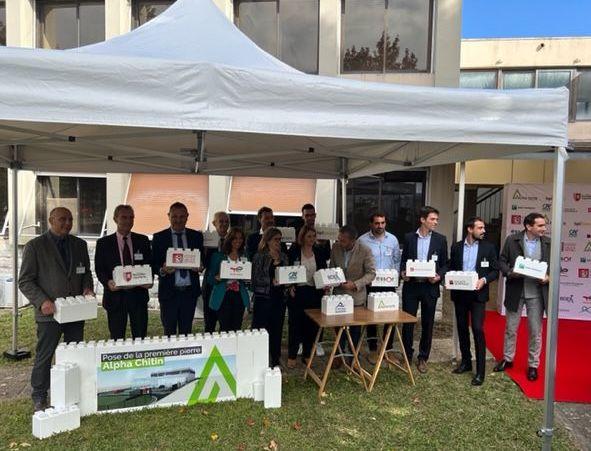Anti-cancer therapies, which are becoming increasingly efficient, nevertheless produce serious side effects. Some 80 % of patients suffer from cutaneous side effects.1which sometimes leads them to interrupt their treatment. Already committed to helping these patients for ten years, La Roche-Posay is now going one step further, with the launch of Fight With Care.
At once a gas pedal of scientific research, a training tool for professionals, and a vector of support for patients and associations, Fight With Care focuses on the concrete, the useful.
Its ambitions by 2025: to raise awareness among 1 billion people worldwide of the side effects of cancer treatment, train 1 million people in supportive care to alleviate them, and support 100,000 patients in their fight against the disease.
Refusing fatality
Dry skin, itching, burning, inflammation of the nail surround are all side effects frequently engendered by cancer therapies. Heavy with physical and psychological impact, these changes are often regarded by patients as inevitable. Some go so far as to suspend their treatment in order to avoid them, thus compromising their chances of recovery.
However, targeted dermo-cosmetic treatments do exist and can provide relief for patients... provided they are informed. In 2018, 84 % of cancer patients were not referred to a dermatologist.2. This situation is all the more damaging given that alleviating treatment-related skin problems is essential: 80 % of patients consider supportive care to be as important as primary treatment.3.
With this in mind, La Roche-Posay, already committed to helping cancer patients for over ten years, decided to intensify its action by launching the Fight With Care program.
"La Roche-Posay, together with dermatologists around the world, has been committed to helping cancer patients for over 10 years. But we still hear patients say: "If I'd known that dermatological solutions existed, it would have changed my life!". That's why we're taking Fight with Care one step further. We believe it's essential to raise awareness of these solutions, which are capable of bringing much-needed relief to patients.says Laetitia Toupet, President of La Roche-Posay International.
The Fight With Care program is built around four pillars and numerous concrete actions.
Advancing knowledge
To help advance knowledge on this major public health issue, La Roche-Posay is extending its long-standing collaboration with the most recognized experts in their field, and joining forces with MASCC (Multinational Association of Supportive Care in Cancer) and AFSOS (Association francophone pour les soins oncologiques de support). Between now and December 2021, La Roche-Posay will contribute to the development of the first international consensus aimed at publishing recommendations for the treatment of cutaneous side effects associated with cancer treatments. The work of this international committee of experts, supported by a large network of partners in the medical world, will aim to inform healthcare professionals through practical advice and a global approach to cutaneous toxicities.
Supporting patients
To support patients wherever they are (hospital, pharmacy, home...), Fight with Care offers a range of concrete actions to help them in their daily lives. The brand is launching a new internet platform (mapeaupendantuncancer.fr) to raise awareness and support patients, and a new patient guide featuring expert advice and testimonials to support patients, but also to enable those around them to provide useful advice (see box below).
To provide patients with clearer information, La Roche-Posay has also decided to add a specific logo to the back of 14 of its products. This new logo will identify products that have been dermatologically tested by cancer patients, helping them to improve their quality of life.
Training pharmacists
Patient care methods are changing: hospitalization at home, or oral chemotherapy delivered in officines, are becoming increasingly common. The pharmacist's role is thus becoming ever more central to these patients' healthcare pathways.
In France, for example, pharmacists have been confier, since January 1, 2021, with the responsibility of offering pharmaceutical talks to patients undergoing oral chemotherapy (OCT). But today only 6 % of breast cancer patients seek information from their pharmacist. And of these, 77 % admit they don't know how to answer all their questions4 .
That's why La Roche-Posay, with the support of Afsos, is offering two new training courses (online and/or face-to-face) for pharmacists, validated by a committee of experts. They will provide training in the different types of cancer, care pathways, anti-cancer therapies and their side effects. Pharmacists will also be given advice on how to conduct a pharmaceutical interview in oncology, afin order to better meet patients' expectations.
Supporting patient associations
Patient associations are essential relays in the fight against cancer, on a day-to-day basis. That's why Fight With Care also aims to support, through donations, a number of associative projects.
La Roche-Posay is already involved with the RoseUp Association 5 in France. This partnership has helped to finance :
- The digitization of Rose homes, where patients receive advice and supportive care.
- The creation of a film presenting the association and its 10 years of action.
- The co-construction of a simple and efficient method for teaching women to take care of themselves and their skin during cancer.
Fight With Care, at the heart of a more global commitment to fighting cancer
The latest of La Roche-Posay's anti-cancer programs, Fight With Care is part of the brand's broader commitment. In parallel, La Roche-Posay is carrying out two other major initiatives:
"Save Your Skin": a program dedicated to the prevention of skin cancers. For over 20 years, the brand has carried out more than 400,000 free melanoma screenings with dermatologists in 35 countries. By 2025, it aims to increase this number to 500,000.
"A Better Life For Children With Cancer": this onco-pediatric support program was launched in 2019 by La Fondation La Roche-Posay and its partner Childhood Cancer International. Created with a multidisciplinary scientific committee and families, it aims to improve the quality of life and break the isolation of children with cancer and their loved ones.
"With Fight With Care, our commitment takes on new momentum. By 2025, our ambition is to inform nearly 1 billion people about the skin toxicity of cancer treatments, train 1 million of them in supportive care, and directly support 100,000 of them in their fight against the disease. Cancer can affect us all. Directly or indirectly. Beyond the numbers, Fight with Care has a single final objective: to be useful and improve the daily lives of as many women and men as possible throughout the world.stresses Laetitia Toupet, President of La Roche-Posay International.
Key figures
- 80 % of patients suffer skin side effects from cancer treatments
- 93 % of La Roche-Posay users find their comfort and well-being improved
- 80% of patients believe that supportive care is as important as treatment
- 9 scientific studies and 12 publications dedicated to the effects of cancer treatments have been carried out by La Roche-Posay
- Over 10 years of brand commitment
1. Charles C, et al. Impact of cutaneous toxicity associated with targeted therapies on quality of life. Results of a longitudinal exploratory study. Cancer Bulletin. March 2013;100(3):213-22.
2. Association of Community Cancer Centers / accc-cancer.org Addressing dermatologic adverse events associated with oncologic therapies by Stephanie Kao, ba, and adam friedman, MD December 2018
3. Afsos/Odoxa study January 2020
4. Survey of women with breast cancer conducted by the association Rose up. Collection of testimonials from 135 women between July 1 and August 31, 2020.
5. RoseUp is a non-profit organization founded by patients and their families. It supports, informs and defends the rights of women affected by cancer. https://www.rose-up.fr/















